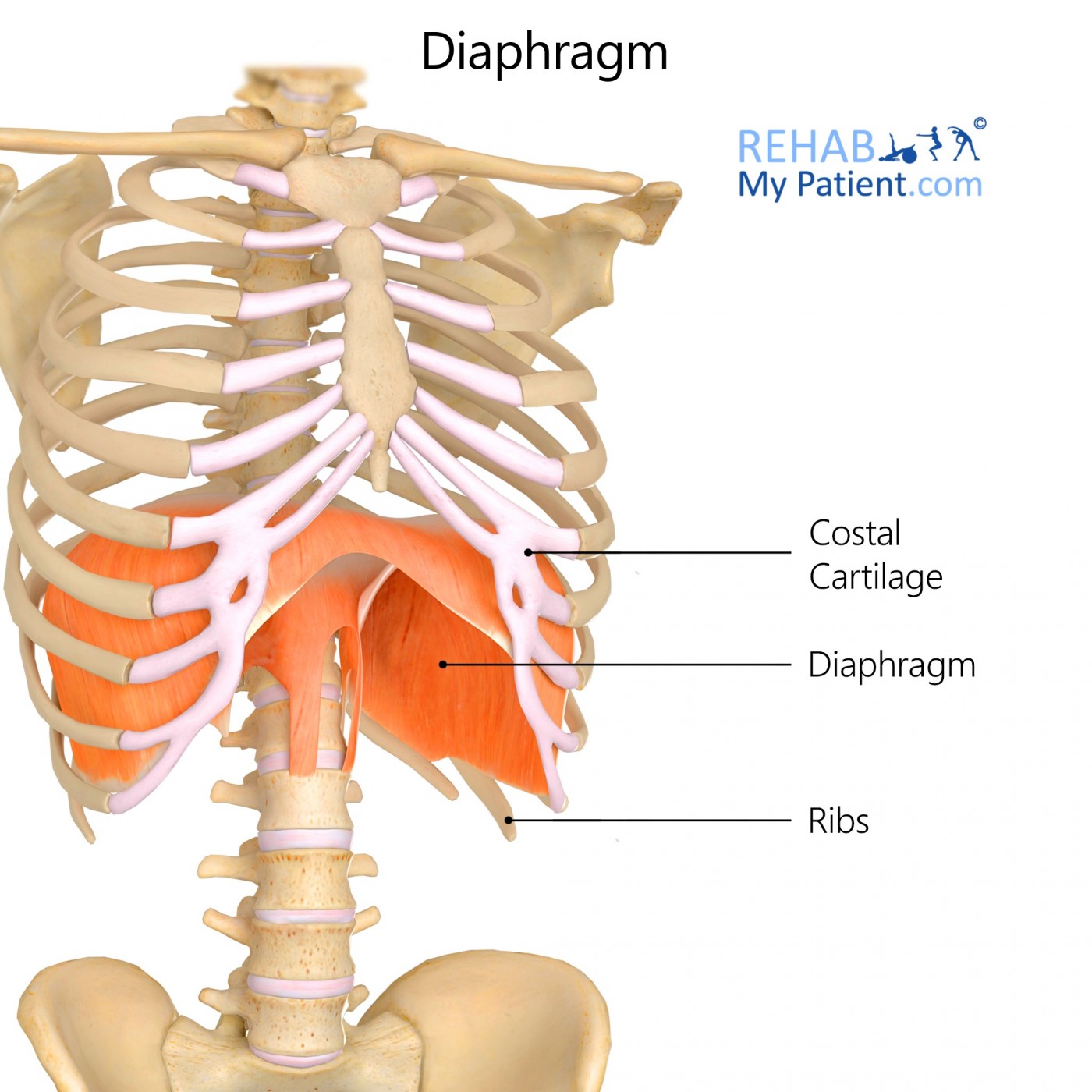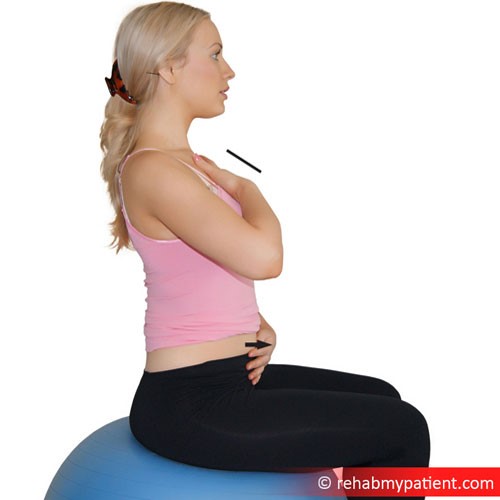
General information
The diaphragm is a dome-shaped trunk muscle. It is an anatomical border that separates the thoracic and abdominal cavities. The diaphragm is also the main active muscle during inspiration.
Literal meaning
The muscle that encloses across.
Interesting information
Diaphragmatic contraction aids in thoracic cavity expansion which increases the cavity’s volume and in turn reduces the intrathoracic pressure. This enables the lungs to expand and fill with air, therefore allowing inspiration to take place.
Origin
Sternal part: Posterior aspect of xiphoid process.
Costal part: Internal surfaces of lower costal cartilages and ribs 7-12.
Lumbar part: Medial and lateral arcuate ligaments, bodies of vertebrae L1-L3 and the corresponding intervertebral discs and the anterior longitudinal ligament.
Insertion
The Central tendon.
Function
Depresses costal cartilages, primary muscle of breathing (inspiration).
Nerve supply
Phrenic nerves (C3-C5).
Blood supply
Subcostal and lowest five intercostal arteries, inferior phrenic arteries, superior phrenic arteries.

Relevant research
Recurrent congenital diaphragmatic hernia is a well-known complication. Herniation may occur through the diaphragm. A diaphragmatic hernia can be congenital. These occur because of abnormalities in the development of the diaphragm in the foetus. Abdominal organs may protrude into the thoracic cavity and disrupt the development of the lungs, causing problems in lung development and the functioning of the lungs after birth.
Diaphragmatic hernias can also be acquired. These usually occur because of blunt force trauma, such as in a road traffic accident or a severe fall. Surgery is required to repair a diaphragmatic hernia.
Rowe, D. H., & Stolar, C. J. (2003). Recurrent diaphragmatic hernia. Seminars in paediatric surgery, 12(2), 107–109.
Diaphragm exercises

Diaphragmatic breathing sitting
Seated on a chair or exercise ball, put one hand on your stomach, and the other on your chest. Take deep breaths in whilst simultaneously pushing your stomach outwards. There should be very little movement in the chest area. The neck and shoulders should remain relaxed throughout.
Sign Up
Sign up for your free trial now!
Get started with Rehab My Patient today and revolutionize your exercise prescription process for effective rehabilitation.
Start Your 14-Day Free Trial